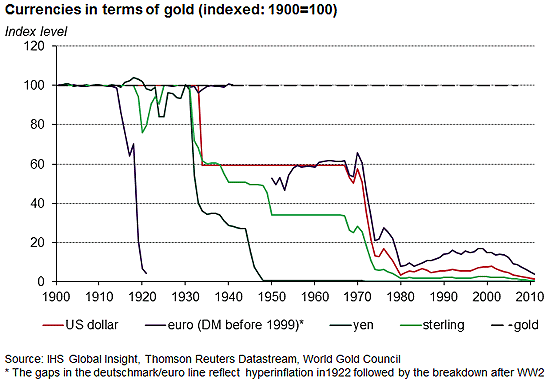Analysis To hedge inflation property trusts are the new gold
Post on: 2 Июль, 2015 No Comment

A man leaves with a prospectus of the Mapletree Greater China Commercial Trust real estate investment trust (REIT) at a marketing booth in Singapore, in this March 4, 2013 file picture.
Analysis & Opinion
HONG KONG (Reuters) — As central banks print cash to boost moribund economies, investors in Asia wanting to hedge against rising prices are dumping gold and doubling down on property.
They are driven by the search for yield as surprisingly benign inflation dims the appeal of bullion, but it’s a risky play given lofty valuations for real estate.
The trend is most visible in the frenzy around real estate investment trusts (REITs) in Asia, where issuance ex-Japan more than quadrupled to $4.33 billion through early May from the same period last year and valuations are at their highest since before the 2008 financial crisis.
I have been saying for the last two years that REITs are a good inflation hedge, said Charlie Chan, one of the best-known hedge fund managers in Asia, who made a killing by betting on them in 2012.
They are easier to value, you get what you see and you own the building and if there is inflation, the building price will just go up, added Chan.
His $200 million hedge fund returned 63 percent last year and is up a further 35 percent in 2013. Asia hedge funds, by comparison, returned 10 percent last year and are up about 9 percent this year, according to Eurekahedge figures.
REITs such as Cambridge Industrial Trust made up more than half his portfolio at one point last year, Chan said.
Since REITs hold various kinds of properties, from factories to shopping malls and hotels, they benefit from higher rents when economies boom and prices rise.
Unlike gold, which doesn’t pay any dividend, REITs also provide a steady flow of income. Yields for REITs in Asia stand at 4.4 percent on average, according to data from StarMine.
Spot gold fell 13 percent this year to May 7. By comparison, the MSCI Asia Pacific REITs index rose 14 percent, according to data from Thomson Reuters Datastream.
Yield-hungry investors are increasingly being squeezed out of the sovereign bond markets by central bankers everywhere, said David Baran, co-founder of hedge fund Symphony Financial Partners in Tokyo. REITs are an increasingly compelling asset class.
NEW OFFER FLOOD
REIT indices in Singapore and Hong Kong rose 13 percent and 17 percent respectively year-to-date, with both reaching all-time highs in the past two weeks.
In response to the red-hot demand, companies are flooding the market with new offerings.
Mapletree Greater China Commercial Trust is a prime example, raising $2.06 billion in Singapore’s largest ever REIT IPO in February. The 5.6 percent yield offered saw institutional investors bid nearly 30 times the units on offer.
Issuance of REITs in Asia ex-Japan has more than quadrupled so far in 2013 from the same period last year to $4.33 billion, according to Thomson Reuters data, and there is no sign of a slowdown given a $4 billion pipeline in the coming two to three months from IPOs alone.
Assets under management at real estate funds investing in Asia and Japan rose to a record $55 billion and $20 billion respectively at the end of March, data from Lipper showed.
With billions more expected from follow-on deals, 2013 looks to be the biggest year for REIT issuance since at least 2007.
Suddenly, you see a lot of REITs coming on to the market and we are seeing a lot of companies that are in the radar because they are paying better yields, said Jalil Rasheed, a Singapore-based investment director at Invesco Asset Management.
COSTLY PROPERTY
Investors are stretching valuations, with the Bank of Japan adding fuel to the fire, with the purchase of 133.8 billion yen ($1.35 billion) of REITs since its asset buying scheme began in December 2010.
As much as 92 percent of the REITs listed in Asia have gained over the last year, with Japan Hotel Reit Investment Corp and Industrial & Infrastructure Fund more than doubling, buoyed by Prime Minister Shinzo Abe’s aggressive fiscal and monetary expansion policies.
The IBES MSCI AC Asia Pacific REITs index now trades at 1.3 times book value, its highest since February 2008 and meaning investors are paying 30 percent more than the value of the underlying property.
The biggest REIT in the region by market value and trading volume, Westfield Group, trades at a record 1.6 times forward 12-month book value, 71 percent above the five-year median, according to data from StarMine. The second-most liquid, Nippon Building Fund, trades at 1.8 times or nearly 80 percent above its five-year median value.
Investors hope to tap into hotel room rates and rental rates on buildings and shopping malls that continue to soar.
Hong Kong’s Swire Properties said it increased rents by up to 82 percent in the three months to March on properties such as One Island East and Cityplaza as supply remains tight.
Regulatory measures have largely targeted the residential market. The commercial space — office buildings, shopping malls and hotels — remains buoyant, said Michael Smith, head of real estate investment banking in Asia ex-Japan at Goldman Sachs in Singapore.
The beauty of these REIT structures is that it’s a very pure exposure to commercial real estate.
($1 = 98.9400 Japanese yen)
(Reporting by Nishant Kumar and Elzio Barreto; Additional reporting by Umesh Desai and Chikafumi Hodo ; Editing by Wayne Arnold and Michael Urquhart )














